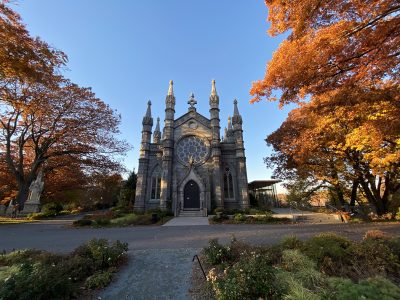Boston Design Week — a 12-day festival celebrating the role of design in everyday life — will return April 28 with a shift toward outdoor and virtual events after the COVID-19 pandemic forced last year’s March programming to be postponed until the fall.

The eighth annual Design Week will bring together experts in fashion, architecture and interior, graphic, landscape and product design from across the world for outdoor events, exhibitions, self-guided tours and panel discussions.
“Unless you’re standing out in the middle of a forest, everything around you is designed, good or bad,” said Boston Design Week co-producer Tony Fusco. “The more aware people are of the design around them, the better able they are to judge good and bad design.”
Boston Design Week was founded in 2014 with the intention of increasing appreciation and understanding of diverse types of design, inspired by similar Design Weeks across the globe, Fusco said.
Former Mayor Marty Walsh noted the significance of Boston’s design industries last September in a written proclamation declaring the year’s Design Week.
“I urge all of my fellow Bostonians to take part in this innovative series,” he wrote, “and celebrate the widespread impact of Boston’s design community.”
Design Week 2020, set to start March 25, was canceled after Gov. Charlie Baker’s declared a state of emergency. Fusco said the team set a later date for this year’s event to coincide with the warmer weather of late spring, shifting to an outdoor emphasis and a “Spring Forward!” theme.
“I think we wound up picking these dates back in September of last year,” he said, “and just keeping our fingers crossed that the pandemic wouldn’t ruin everything again.”
The festival includes more than 50 events this year, he added, featuring guests such as the architect of Boston’s Leonard P. Zakim Bunker Hill Memorial Bridge and the architecture firm behind the Christian Science Plaza revitalization project. Those interested can RSVP on the Boston Design Week website to attend any event free of charge, Fusco said.
Design Week comes in collaboration with an array of sponsors and nonprofit partners, from The Boston Globe to the Museum of Fine Arts, Boston. Some of these groups will hold their own individual programs or workshops.
The Boston Architectural College was a partner of the festival in its first year and again this year. Karen Nelson, dean of Architecture at BAC, said the college will be taking full advantage of the shift to a partially virtual format this year.
“[It] has allowed us to connect with a faculty member who’s based in Oregon,” she said. “It actually broadens the audience in many cases, because people don’t have to leave their home to participate.”
She said one of the best aspects of the week is the way it expands the definition of design for many. For instance, someone who might be interested in interior design, she said, could learn about the importance of play in children’s playgrounds — a topic to be presented by a member of BAC’s faculty this year.
“The whole point is that the community and audience of Boston Design Week is sometimes different than the people who come to study with us, teach with us or come to our gallery on Newbury Street,” she said.
Nelson said it’s important to educate people on design because it can give them the “power” to both understand and discuss how to better their living conditions — adding that the college regularly accomplishes this through public events.
“We hold some community workshops and public talks about design, so people are not feeling excluded from it,” she said. “We do our best to open up the process and not just show people final products, but show them how the architect, landscape architect, interior architect got to their design outcome.”
The BAC’s connection to Design Week, Nelson said, comes from a long-standing relationship with Fusco’s arts public relations and marketing company, Fusco & Four, which would sponsor auctions to raise money for scholarships.
“[Fusco’s] been a big booster of our programs,” she said, “and our mission to diversify the design professions and engage the community.”
Typically held in the spring, the festival tends to coincide with an influx of tourism. Hotels had a roughly 88% occupancy rate for the months of April and May in 2019, according to data provided by the Greater Boston Convention and Visitors Bureau — tourism fell sharply in 2020.
People are quickly signing up again and attending events this year, Fusco said, as at least one of the events has already sold out.
“We expect others to be sold out before we get to the 28th,” he said. “We really want people to take advantage of the programming.”
Fusco said the role of art and design in Boston is indispensable, because “bad design impacts everybody.” A poorly designed cabinet in his office, which he often bumps his elbow trying to open, can share the same flaws of a poorly made city, he said.
“What is the design of the city?” he asked, “What are the parks? Where are the open spaces? Where are the public amenities? You don’t want to keep bumping your elbow on bad design all over the city.”


















































































































